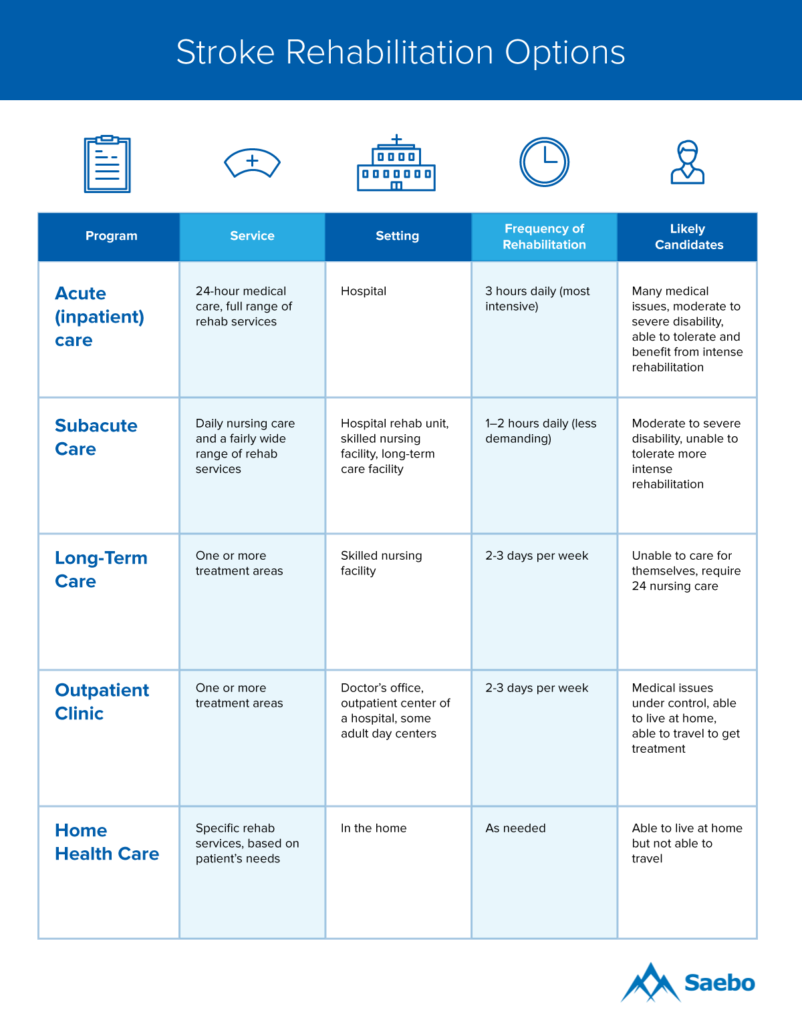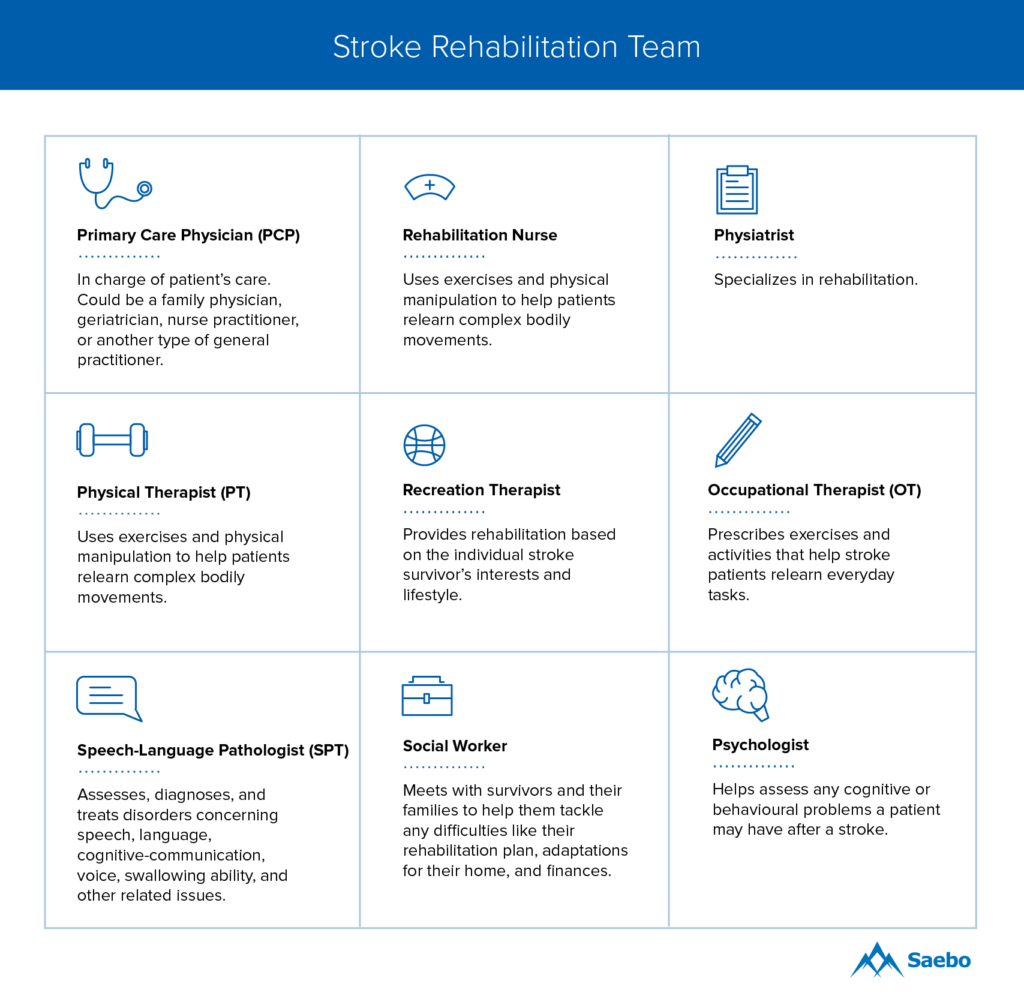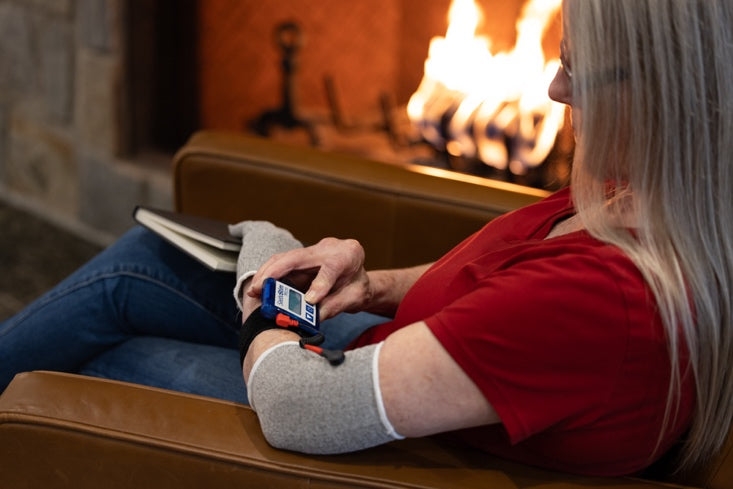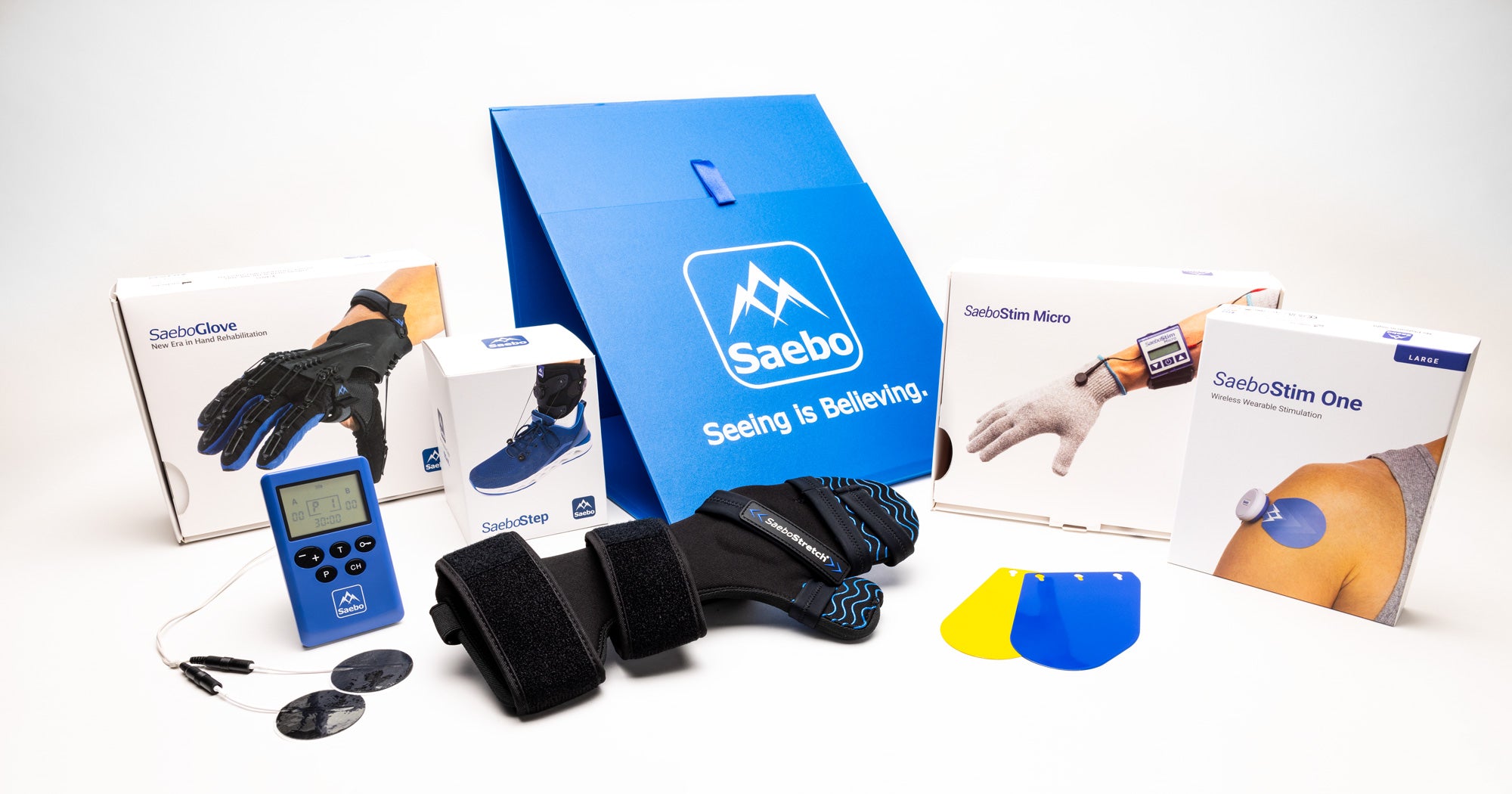
How to Choose the Right Stroke Rehabilitation Services

Every year, more than 795,000 people in the United States have a stroke. Only 10 percent of those people will recover completely, leaving 25 percent with minor impairments and another 40 percent with moderate to severe impairments that require special care. Rehabilitation is one of the most important components of post-stroke care, and yet it leaves much to be desired. Although studies have shown the effectiveness of post-stroke rehabilitation, there remains a serious gap between stroke survivors being discharged from the hospital and transitioned to a physical recovery program.
Rehabilitation should start in the hospital as soon as possible after the stroke and be continued as necessary after the patient is released from the hospital. An individual's stroke rehabilitation options after leaving the hospital will depend on the severity of their stroke, what intensity of rehabilitation they are able to tolerate, their degree of disability, and their insurance and available funds. In every case, the goal of stroke rehabilitation is to improve the stroke survivor’s function so they can regain their independence.
Understanding rehabilitation options is important when choosing the right option for your loved one. Rehabilitation often involves the hard work of many different healthcare professionals, and it can be confusing to navigate. Your healthcare team will be able to guide you through this process and answer any of your questions, but ultimately the decision will be up to you and your loved one.
This article will help you understand the different options and be aware of the health professionals you would be working with. Each stroke survivor is unique and has different rehabilitation needs, therefore make sure the healthcare team finds the best option available.
Stroke Rehabilitation Options
There are five main rehabilitation options for stroke survivors. The healthcare team will help determine which one is right for you or your loved one, taking into account the patient's preferences. The five options are:
- Acute Rehabilitation: Stroke survivors who are moderately to severely disabled and could benefit from and tolerate three hours of daily active therapy will likely spend time in an acute rehabilitation setting. This type of care has been found to be extremely beneficial for stroke survivors in the early stages of recovery. Patients usually stay in this setting rehabilitation setting for 2–3 weeks.
- Subacute Care. For stroke survivors who are unable to handle the intensive rehabilitation in acute rehab, subacute care is a less intensive option. Patients will receive 1–2 hours of daily active therapy and will generally stay longer than a patient in acute rehab. Subacute care can also be inpatient, the difference is in how intense the rehabilitation is.
- Long-Term Care. If a stroke survivor needs 24 hour nursing care for longer than the short time frame of acute or subacute care, they will need to move to a long-term care facility. Patients who benefit from this type of care are unable to care for themselves and lack an at-home caregiver to assist them.
- Outpatient Clinic. Stroke survivors who are able to live at home and travel to get care may be a candidate for an outpatient clinic. In order to visit an outpatient clinic, the patient needs to be medically stable and able to travel to go to therapy 2-3 days a week.
- Home Health Care. Home health care is best for patients who are able to live at home but are not able to travel to an outpatient clinic multiple times per week. Home health care has the benefit of learning skills in the same place you will use them.

Stroke Rehabilitation Team
During all the stages of stroke recovery and rehabilitation, there will be a team of healthcare professionals from different specialties. Understanding what services each member of your team specializes in, will help you know who to go to for answers to questions you might have. Some of the rehabilitation specialists you might work with are:
- Primary Care Physician. A primary care physician (PCP) is a doctor trained in general medicine who will be in charge of a patient’s care. They will refer the stroke survivor to other specialists for more stroke-specific care. A PCP could be a family physician, geriatrician, nurse practitioner, or another type of general practitioner.
- Physiatrist. A physiatrist is a doctor specifically trained to specialize in rehabilitation. They will work with the PCP and the rest of the healthcare team to come up with a rehabilitation plan.
- Rehabilitation Nurse. Rehabilitation nurses specialize in helping people with disabilities. They provide direct care to the patient, helping them with personal care issues, training them on basic tasks for daily living, and educating them and their family.
- Occupational Therapist. Most stroke patients need occupational therapy to be able to return to their activities of daily living (ADL). Occupational therapists (OT) prescribe exercises and activities that help stroke patients regain their physical and cognitive abilities and relearn everyday tasks.
- Physical Therapist. Physical therapists (PT) use exercises and manual therapy to help patients relearn complex bodily movements and avoid complications that could derail their progress later. Physical therapists begin with the most basic tasks and movements, such as safely moving from a bed to a chair and progress to more complex movements such as using the stairs.
- Recreational Therapist. A recreational therapist provides rehabilitation based on the individual stroke survivor’s interests and lifestyle. Recreational therapies allow the stroke patient to improve their health while participating in activities they enjoy, which has positive emotional and social benefits as well.
- Speech-Language Pathologist. Speech-language pathologists (SLP), also known as speech therapists, are able to assess, diagnose, and treat disorders concerning speech, language, cognitive-communication, voice, swallowing ability, and other related issues. Ultimately, the goal of the speech-language pathologist is to help the patient attain the highest level of language and communication function as possible.
- Social Worker. Hospital social workers meet with survivors and their families to help them tackle any difficulties they may face. They help survivors make decisions about things like their rehabilitation plan, adaptations for their home, and finances.
- Psychologist. A psychologist will help assess any cognitive or behavioral problems a patient may have after a stroke using interviews and tests. They may also help treat thinking or memory problems.

Questions to Ask The Healthcare Team
When making an important decision like what kind of rehabilitation one should get after a stroke, it is vital to discuss your options thoroughly with the doctor. They will be familiar with specific medical challenges and disabilities. They should also know the rehabilitation options in the community. If you are not sure where to start, here are some questions to ask your healthcare team:
Health Questions For The Primary Care Physician
- What is the extent of the stroke damage?
- What areas of the brain have been affected?
- What is the prognosis and expected course for recovery?
- What types of rehabilitation services are likely to improve the outcome?
- What is the patient's ability to participate and engage in physical rehabilitation?
- What is the patient's underlying medical situation and complexity, and what other medical services will be required?
Questions to Ask When Choosing a Facility
- What types of rehabilitation care will the insurance cover?
- How many patients are in your stroke rehabilitation program?
- What percentage of your short-term residents are successfully discharged home?
- How do you assure high-quality care?
- How do you evaluate progress?
- What therapy programs are available?
- How do you prepare the patient and caregiver for home?
Questions to Ask When Evaluating a Facility
- Are you certified to care for stroke patients?
- What is the maximum amount of rehabilitation services one can receive?
- How intense will the rehabilitation be?
- Are family members encouraged to participate in some rehabilitation?
- How do you measure functional recovery, and what outcomes are typical for stroke patients?
- Do you have a stroke support group for survivors and their families?
- Do you conduct home visits before checking people out of the center and releasing them to their homes?
- Are staff members required to keep up with new information and technology about stroke and rehabilitation? How do they do so?
- How do you prepare the patient and caregiver for home?
Sources:
https://www.stroke.org/wp-content/uploads/2018/12/NSA_CaregiversAndStroke.pdf
http://www.strokecenter.org/wp-content/uploads/2011/08/Recovering-After-a-Stroke.pdf
http://www.strokeassociation.org/STROKEORG/AboutStroke/Treatment/Diagnosis/Choosing-the-Right-Stroke-Rehab-Facility_UCM_490273_Article.jsp#.WK-CwVUrKUl
Make an Informed Decision
Picking a rehabilitation facility is one of the most important decisions one will make during stroke recovery. There is much to consider, including the patient’s condition and their preferences (and their caretaker’s) about services offered.
Proper physical rehabilitation is necessary to successfully recovering from a stroke. Make sure you discuss your options with your healthcare team and use the questions above to guide you as you find the information you need to make the best decision for your family.
All content provided on this blog is for informational purposes only and is not intended to be a substitute for professional medical advice, diagnosis, or treatment. Always seek the advice of your physician or other qualified health provider with any questions you may have regarding a medical condition. If you think you may have a medical emergency, call your doctor or 911 immediately. Reliance on any information provided by the Saebo website is solely at your own risk.
All content provided on this blog is for informational purposes only and is not intended to be a substitute for professional medical advice, diagnosis, or treatment. Always seek the advice of your physician or other qualified health providers with any questions you may have regarding a medical condition. If you think you may have a medical emergency, call your doctor or 911 immediately. Reliance on any information provided by the Saebo website is solely at your own risk.



